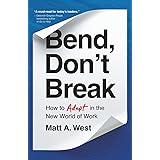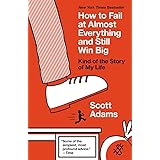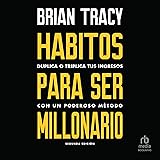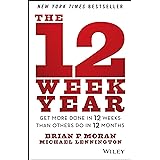The sentiment expressed in the video above, from the perspective of someone feeling trapped in a demanding, unfulfilling role, resonates deeply with many individuals. The idea of being a “miserable wage slave,” to use the speaker’s powerful phrase, highlights a common dilemma faced by those who have drifted into careers that drain their spirit rather than energize it.
Indeed, a significant issue arises when one’s work feels like a constant drain, with long hours contributing more to the wealth of owners and investors than to one’s personal growth or financial independence. This perceived imbalance can lead to a profound sense of regret and stagnation, making the idea of a significant career change seem almost insurmountable.
Recognizing the Road to Career Fulfillment and Escaping the “Wage Slave” Mentality
Firstly, acknowledging feelings of dissatisfaction is a crucial step towards achieving greater career fulfillment. Many find themselves in situations where extensive hours are dedicated to tasks that offer little personal reward, resulting in a feeling of being undervalued and overworked.
The speaker’s lament of working “12 hours a day for pennies” while others profit immensely is a stark illustration of this imbalance. It speaks to a common experience where individual effort is not adequately reflected in personal compensation or professional advancement.
The Trap of Prolonged Unhappiness in Your Career
Secondly, remaining in an unfulfilling role for an extended period can be incredibly detrimental. What begins as a temporary necessity often morphs into a long-term trap, where the comfort of routine and a predictable paycheck overshadows a deep-seated desire for change.
It is often observed that years spent in a career that is disliked can severely limit one’s perceived options. The specific skills developed might be narrow, and the thought of starting fresh in a new field can feel overwhelming.
This situation often leaves individuals feeling stuck, believing that a different path is no longer accessible to them. The longer one waits, the more formidable the psychological barriers to pursuing dreams can become.
Why Pursuing Dreams Early Can Lead to Greater Job Satisfaction
The video’s advice to “try things” when you’re young is particularly insightful, emphasizing the precious commodity of time. Early career stages are often characterized by fewer financial commitments and a greater capacity for risk-taking, making them ideal for exploration.
Experimentation during these formative years can be invaluable for discovering genuine passions and building a foundation for a truly satisfying career. It is through these varied experiences that a clearer vision for future professional paths often emerges.
Overcoming the Fear of Career Change and Embracing New Paths
Subsequently, the process of pursuing dreams and initiating a career change requires careful planning and courage. It involves not just identifying what is disliked but actively seeking out what truly sparks interest and aligns with personal values.
For those feeling trapped, a structured approach can be taken to pivot towards a more fulfilling role. This often begins with identifying transferable skills, exploring new industries, and building a professional network that supports aspirations for job satisfaction.
A tangible step might involve taking on a part-time course or volunteering in a new field to gain experience and validate interest without immediately abandoning one’s current income stream. Such incremental steps can build confidence and provide a clearer direction.
Strategies for Building a Career Focused on Fulfillment, Not Just Survival
Ultimately, a shift in mindset is required, moving away from merely tolerating a job towards actively designing a career that offers genuine fulfillment. This proactive stance ensures that professional life is a source of growth and purpose.
One strategy involves creating a “side hustle” or passion project that could eventually blossom into a full-time venture, thereby enabling a smoother transition away from an undesirable “wage slave” existence. This approach allows for gradual skill development and market testing.
Another key element is investing in continuous learning and skill development. Acquiring new competencies makes individuals more adaptable and competitive in different fields, broadening opportunities for meaningful career change and greater job satisfaction.
The Long-Term Impact of Prioritizing Personal Growth Over Perceived Stability
The long-term benefits of prioritizing personal growth and the pursuit of dreams far outweigh the perceived stability of an unfulfilling job. While it may seem daunting to leave a secure, albeit miserable, position, the psychological toll of prolonged unhappiness is immense.
Individuals who make deliberate career pivots often report significantly higher levels of overall life satisfaction and reduced stress. The journey toward a more aligned career path is an investment in one’s mental health and future well-being.
It is worth noting that a career built on passion and purpose often leads to greater resilience and innovation. This can result in increased success and even higher earning potential in the long run, as motivation levels remain consistently high for those pursuing their dreams.
Therefore, the wisdom shared in the video serves as a powerful reminder: do not let years slip by in a state of professional misery. The proactive pursuit of a fulfilling career path is not merely an option, but a vital necessity for long-term happiness and genuine job satisfaction.
Ask the Wage Slave
What does it mean to be a “miserable wage slave”?
It describes someone who feels trapped in a demanding job that drains their spirit instead of energizing it, often working long hours for little personal reward.
Why is it important not to stay in an unfulfilling job for too long?
Staying too long can make you feel stuck and limit your perceived options, as the comfort of routine and a predictable paycheck can overshadow a desire for change.
When is the best time to explore different career paths or pursue personal dreams?
The article suggests that early career stages are ideal for exploration because you often have fewer financial commitments and a greater capacity for risk-taking.
What are some initial steps if you want to change careers but feel trapped?
Start by acknowledging your dissatisfaction, identifying your transferable skills, and exploring new fields through part-time courses, volunteering, or even a small side project.









